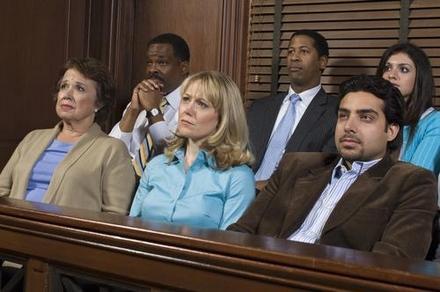TELEPHONES ANSWERED 24 HOURS A DAY
Batson Challenge: What Rights Do Criminal Defendants Have Under Batson v. Kentucky?
 Batson v. Kentucky – a 1986 case decided by the United States Supreme Court – affords both federal and state criminal defendants with an important right. Batson prohibits the prosecution from using peremptory challenges to exclude potential jurors from serving on a jury simply because of their race. This is referred to as a Batson challenge. Understanding the Court’s decision and its impact today can help potential criminal defendants understand their rights at trial and ensure they are protected.
Batson v. Kentucky – a 1986 case decided by the United States Supreme Court – affords both federal and state criminal defendants with an important right. Batson prohibits the prosecution from using peremptory challenges to exclude potential jurors from serving on a jury simply because of their race. This is referred to as a Batson challenge. Understanding the Court’s decision and its impact today can help potential criminal defendants understand their rights at trial and ensure they are protected.
The Decision in Batson v. Kentucky
The African-American defendant in Batson faced charges of burglary and receipt of stolen goods. During jury selection, the prosecutor utilized his peremptory challenge to remove six potential jurors, including all four African-American members of the jury panel. (State statutes give each party in a criminal suit a certain number of peremptory challenges, which can be used to remove potential jurors from a jury panel without requiring the party exercising the challenge to explain his or her choice.) An all-white jury was selected and Batson was convicted of the crimes. He appealed his conviction all the way up to the Supreme Court of the United States. In a 7-2 U.S. Supreme Court case, the Court held that Batson’s Equal Protection rights were violated by the prosecutor’s actions.
Going forward, the Court held that a defendant wishing to raise a Batson challenge to the manner in which a jury is selected in his or her case must show:
- That the defendant is a member of a cognizable racial group;
- That the prosecutor has used his or her peremptory challenges to exclude members from the jury pool who are members of the defendant’s raise; and
- Facts and circumstances raise an inference that the prosecutor used his or her peremptory challenges to deliberately exclude those members from the jury panel because of their race.
Once a defendant has made these showings, the prosecution is then required to provide a race-neutral reason for excluding the black members from the jury panel.
Extending Batson to Other Improper Exercises of Peremptory Challenges
Other cases in the wake of Batson have prohibited the prosecution from excluding potential jurors based on their sex. Attempts have been made to prohibit exclusion of members based on sexual orientation and other personal characteristics as well. Some of these efforts, however, have not been successful: for instance, a white criminal defendant has unsuccessfully challenged the exclusion of minority potential jurors using Batson.
What Should a Defendant Watch For?
If you have been charged with a criminal offense and are facing trial, the following behaviors by the prosecutor may suggest that a Batson challenge is appropriate:
- A prosecutor who does not question or engage any members of the panel who are members of the defendant’s race;
- A prosecutor who makes racist remarks, makes repeated references to the race of the defendant, or otherwise inappropriately highlight racial issues – especially if the crime is not one alleged to be racially motivated; or
- A prosecutor who removes challenges all jurors that are of the same race as the defendant.




